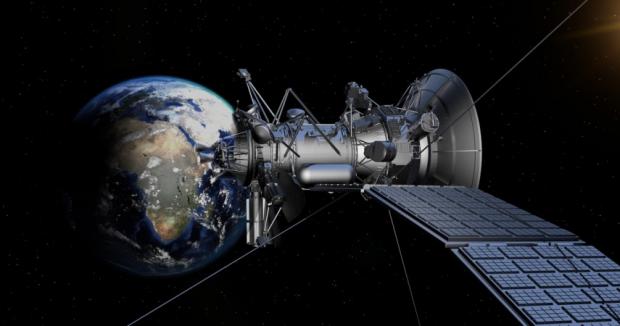
Breaking News
 US Lawmakers Shmooze with Zelensky at Munich Security Conference...
US Lawmakers Shmooze with Zelensky at Munich Security Conference...
 Scientists have plan to save the world by chopping down boreal forest...
Scientists have plan to save the world by chopping down boreal forest...
 New Coalition Aims To Ban Vaccine Mandates Across US
New Coalition Aims To Ban Vaccine Mandates Across US
Top Tech News
 New Spray-on Powder Instantly Seals Life-Threatening Wounds in Battle or During Disasters
New Spray-on Powder Instantly Seals Life-Threatening Wounds in Battle or During Disasters
 AI-enhanced stethoscope excels at listening to our hearts
AI-enhanced stethoscope excels at listening to our hearts
 Flame-treated sunscreen keeps the zinc but cuts the smeary white look
Flame-treated sunscreen keeps the zinc but cuts the smeary white look
 Display hub adds three more screens powered through single USB port
Display hub adds three more screens powered through single USB port
 We Finally Know How Fast The Tesla Semi Will Charge: Very, Very Fast
We Finally Know How Fast The Tesla Semi Will Charge: Very, Very Fast
 Drone-launching underwater drone hitches a ride on ship and sub hulls
Drone-launching underwater drone hitches a ride on ship and sub hulls
 Humanoid Robots Get "Brains" As Dual-Use Fears Mount
Humanoid Robots Get "Brains" As Dual-Use Fears Mount
 SpaceX Authorized to Increase High Speed Internet Download Speeds 5X Through 2026
SpaceX Authorized to Increase High Speed Internet Download Speeds 5X Through 2026
 Space AI is the Key to the Technological Singularity
Space AI is the Key to the Technological Singularity
 Velocitor X-1 eVTOL could be beating the traffic in just a year
Velocitor X-1 eVTOL could be beating the traffic in just a year
China Focus: China's satellite sends unbreakable cipher from space

The achievement based on experiments conducted with the world' s first quantum satellite, Quantum Experiments at Space Scale (QUESS), was published in the authoritative academic journal Nature on Thursday.
The Nature reviewers commented that the experiment was an impressive achievement, and constituted a milestone in the field.
Nicknamed "Micius," after a 5th Century B.C. Chinese philosopher and scientist who has been credited as the first person ever to conduct optical experiments, the 600-kilogram-plus satellite was sent into a sun-synchronous orbit at an altitude of 500 kilometers on Aug. 16, 2016.
Pan Jianwei, lead scientist of QUESS and an academician of the Chinese Academy of Sciences (CAS), said the satellite sent quantum keys to ground stations in Xinglong, in north China's Hebei Province, and Nanshan, near Urumqi, capital of northwest China's Xinjiang Uygur Autonomous Region.

 Going the Way of the Denarius
Going the Way of the Denarius

